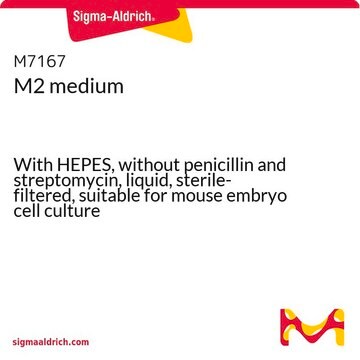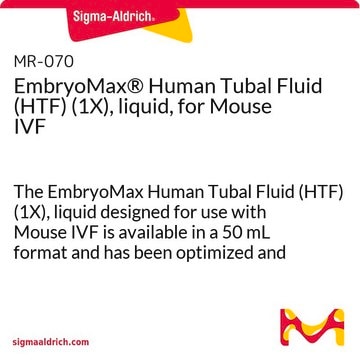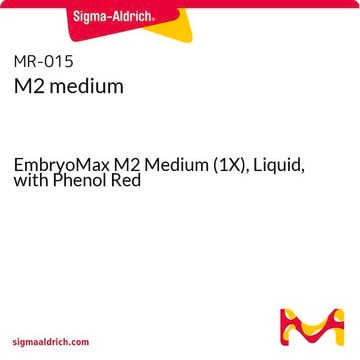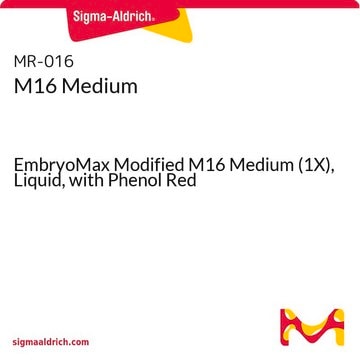M7292
M16 Medium
With sodium bicarbonate and lactic acid, without penicillin and streptomycin, liquid, sterile-filtered
Synonym(s):
Cell Culture Medium, Cell Culture Medium M16, M16 Medium Solution
About This Item
Recommended Products
Quality Level
sterility
sterile-filtered
form
liquid
technique(s)
cell culture | embryo: suitable
impurities
endotoxin, tested
components
NaHCO3: 2.101 g/L
phenol red: 0.0106 g/L
sodium pyruvate: 0.0363 g/L
glucose: 1.0 g/L (Dextro)
shipped in
ambient
storage temp.
2-8°C
Application
Quality
Reconstitution
Analysis Note
related product
Storage Class Code
12 - Non Combustible Liquids
WGK
WGK 1
Flash Point(F)
Not applicable
Flash Point(C)
Not applicable
Certificates of Analysis (COA)
Search for Certificates of Analysis (COA) by entering the products Lot/Batch Number. Lot and Batch Numbers can be found on a product’s label following the words ‘Lot’ or ‘Batch’.
Already Own This Product?
Find documentation for the products that you have recently purchased in the Document Library.
Customers Also Viewed
Articles
Mouse embryo media and embryo validated reagents for transgenic mouse embryo culture
Our team of scientists has experience in all areas of research including Life Science, Material Science, Chemical Synthesis, Chromatography, Analytical and many others.
Contact Technical Service












